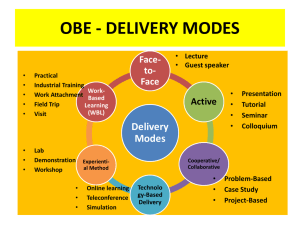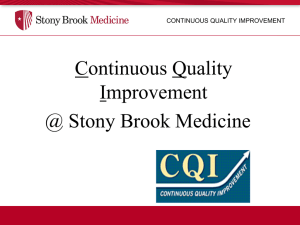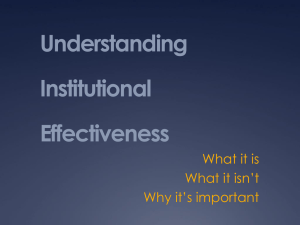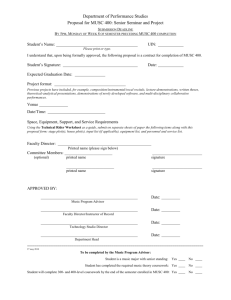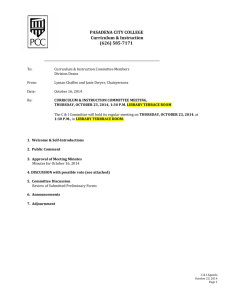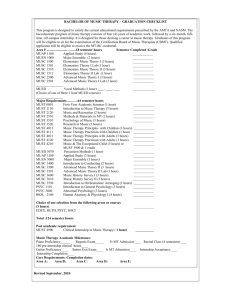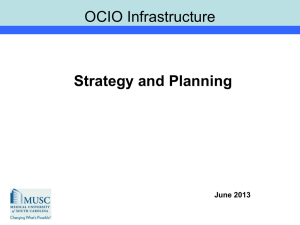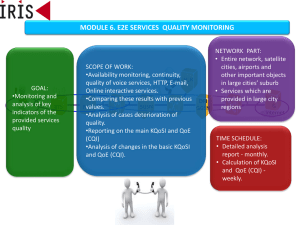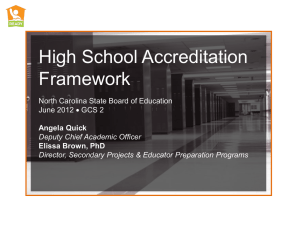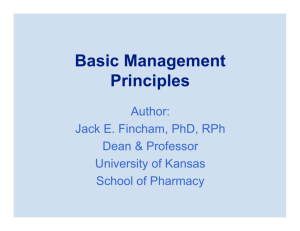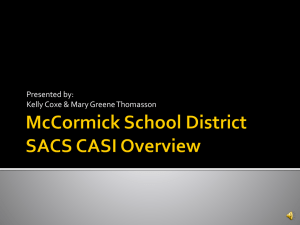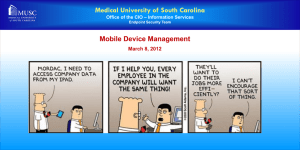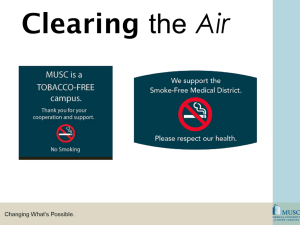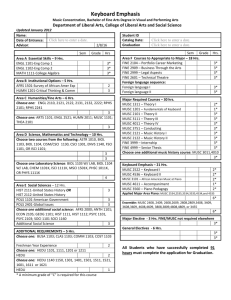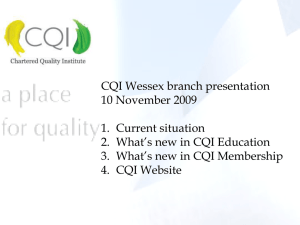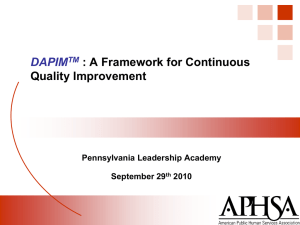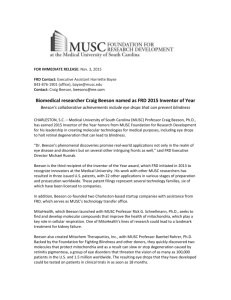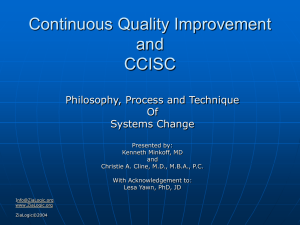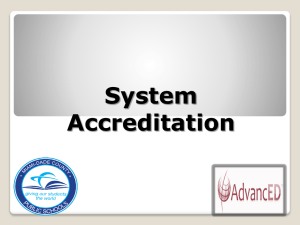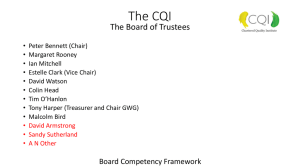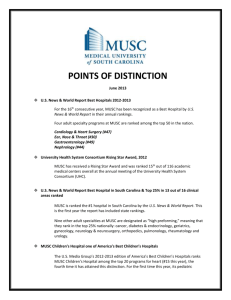Office of Institutional Effectiveness
advertisement
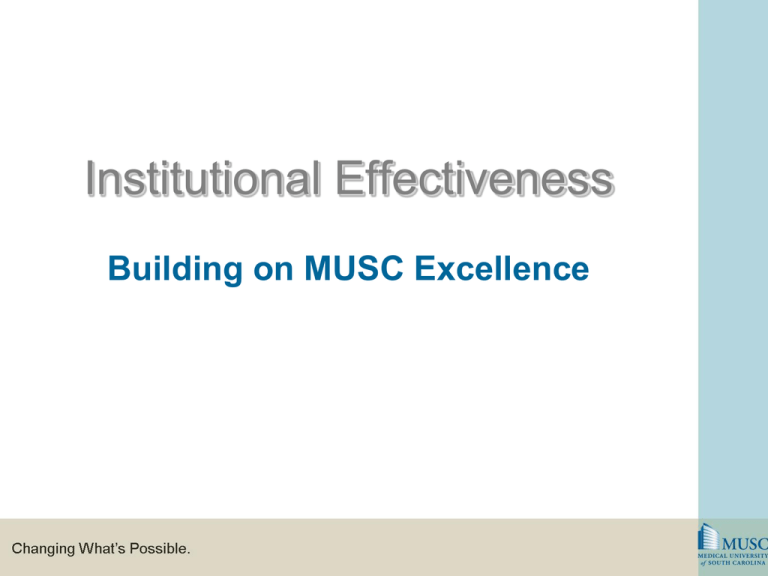
Institutional Effectiveness Building on MUSC Excellence University accreditation • MUSC is accredited by the Southern Association of Colleges and Schools (SACS) • SACS is to the university what JCAHO is to the hospital — accreditation is critical to our mission • SACS provides 10-year accreditations with mid-term (five year) re-affirmation reviews • Most recent accreditation in 2007; reaffirmation review is in March 2013 Institutional Effectiveness • ”Institutional effectiveness” is one of the standards used to determine whether a college or university maintains its accreditation • It refers to the continuous quality improvement (CQI) processes supported at the institutional level for academic (degree/certificate-granting) programs administrative units student support services Institutional effectiveness = Standardized demonstration of CQI • The university engages in decentralized CQI – For example, our accredited academic programs must show continuous quality improvement to meet their own accreditation standards (e.g., CCNE; LCME) • SACS requires that the university show at a centralized level that all programs (including students support and administrative programs) show similar CQI efforts – CQI processes must be standardized – Institutional commitment to CQI must be evident Institutional Effectiveness takes MUSC Excellence to the next level MUSC Mission Strategic Plan Collect data and analyze outcomes Identify outcomes (objectives) and valid measures (metrics) and thresholds (criteria) of success on each metric Closing the Loop Interpret outcomes; identify where improvements are needed Implement changes that are expected to improve outcomes & continue to assess Institutional Effectiveness takes MUSC Excellence to the next level MUSC Mission Strategic Plan Collect data and analyze outcomes Identify outcomes (objectives) and valid measures (metrics) and thresholds (criteria) of success on each metric Closing the Loop Interpret outcomes; identify where improvements are needed Implement changes that are expected to improve outcomes & continue to assess Common barriers for institutions in closing the loop • Unclear objectives, metrics and/or definition of assessment • Inadequate resources • Trying to do too much • A compliance mentality • Philosophical resistance • Conflict with other faculty duties • “Assessment fatigue” • Not sure how to do it Slide courtesy of Barbara Wright, Associate director of the Western Association of Colleges and schools Office of Institutional Effectiveness Director Suzanne Thomas, PhD Mission To support MUSC’s culture of excellence and accountability by ensuring continuous quality improvement processes in our academic, student support, and administrative programs Office of Institutional Effectiveness Goals 1. To standardized a continuous quality improvement process that assists programs in meeting standards of effectiveness identified by the university and by their own accrediting organizations 2. To maintain the university in excellent standing with its accrediting organizations 3. To provide information valuable for institutional strategic planning Inherent value of centralizing Institutional Effectiveness • Accreditation is important, but it’s not the most important reason for centralized CQI • We’ll be able to better evaluate the degree to which we are achieving our mission as a university • The information we gain from it will be integrated into institutional planning and strategic initiatives • Can ultimately reduce the effort needed by individual academic programs to maintain their own accreditations First order of business • The OIE is leading our response to recommendations during a recent pre-reaffirmation review by SACS reviewers due July 2012 • Cooperation by leaders at all levels of the university is critical to ensuring that we provide a compelling report and are well positioned for our reaffirmation review in March 2013 Questions? Comments?
